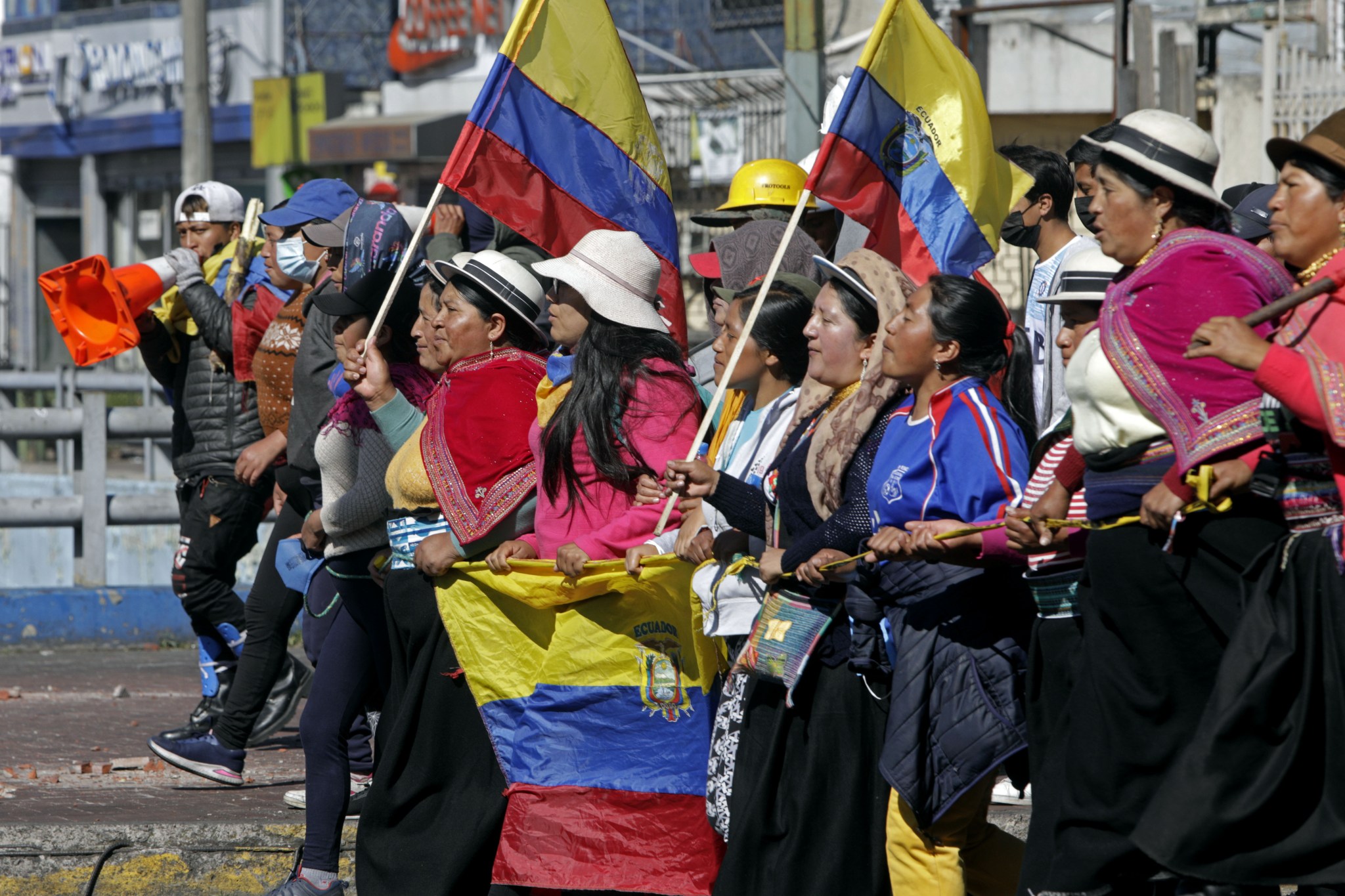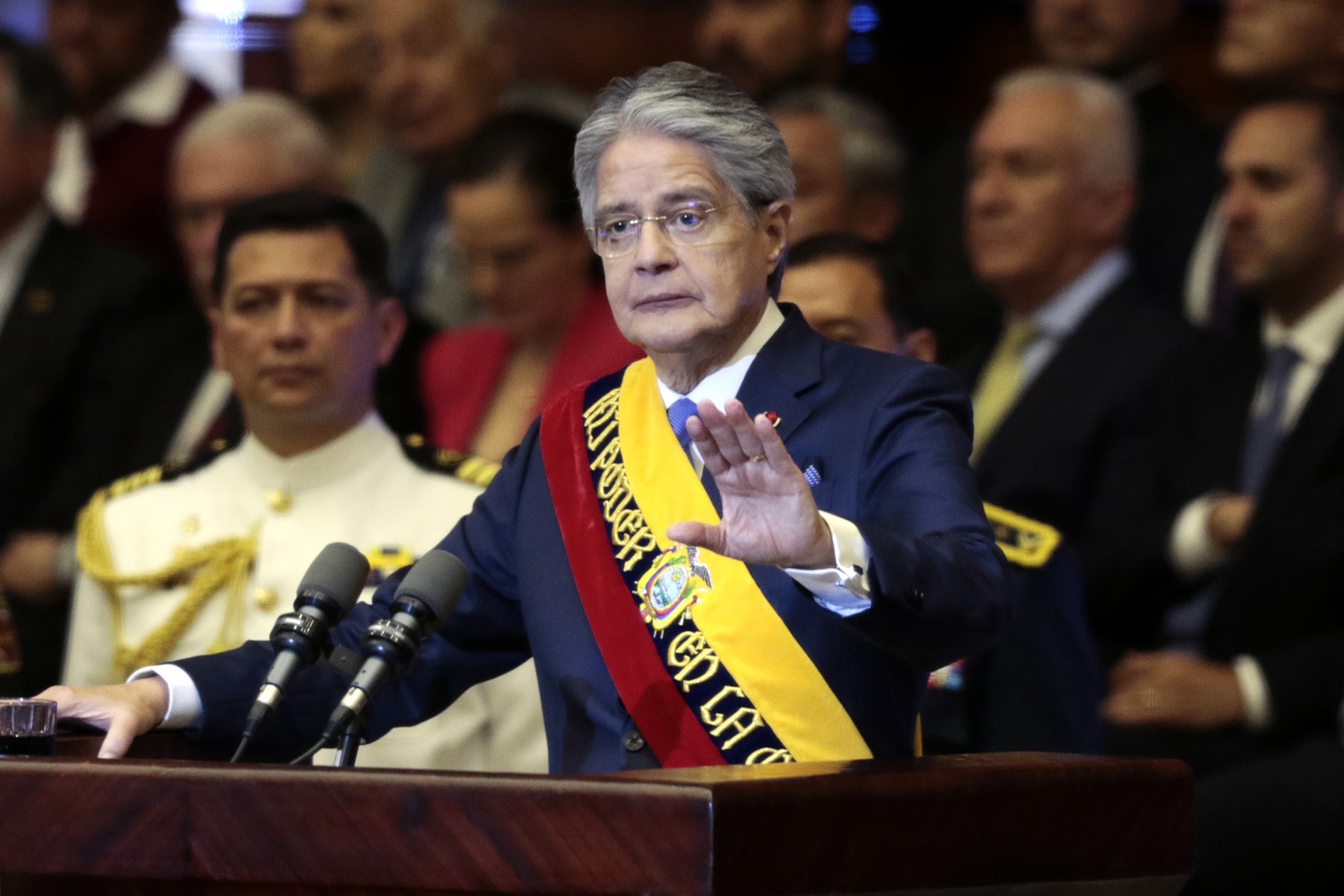
Guillermo Lasso won Ecuador’s presidency in April 2021 promising to reactivate the nation’s economy through lower taxes, less regulation, and increased incentives for international investment. The election of the conservative former banker marked significant change after two decades under the rule of former president Rafael Correa and his leftist Correísta movement. Lasso’s center-right party Creando Oportunidades (CREO), however, won less than 10% of the National Assembly (NA). Further, ideologically leftist parties including the Correísta coalition Unión por la Esperanza (UNES), Pachakutik (MUPP), and Izquierda Democrática (ID) comprised a majority of the seats in the chamber.
During his first months, Lasso experienced high approval ratings for his handling of the COVID-19 vaccine rollout, vaccinating nine million Ecuadorians within his first 100 days in office. His favorability declined, however, as opponents mobilized on the streets and in the legislature against his proposed economic policies.

Social Unrest
As economic and social conditions worsened, citizens became disillusioned with Lasso’s policy agenda and the stagnant NA. In June 2022, in response to the rising cost of gasoline, the Confederation of Indigenous Nationalities of Ecuador (CONAIE) launched an ‘indefinite’ national strike aimed at forcing the administration’s hand on 10 demands in social and economic policy. The demands—which included a reduction of the price of gasoline, economic aid, and higher investments in public healthcare and education—presented a stark contrast to Lasso’s policy agenda. On June 30, after 18 days of national paralysis that significantly affected economic activity, dialogues between the government and CONAIE, and mediated by the Ecuadorian Episcopalian Conference, brought an end to the national strike. The government conceded to some demands, reducing the price of gasoline and committing to changes in environmental policy, overturning executive orders and setting back the president’s economic agenda. This national strike demonstrated the significant barriers the Lasso administration faces in the streets, but perhaps Ecuador’s governance challenge is more prominent in the NA.
Legislative Stalemate
In May 2022, amid the contentious opposition to Lasso’s economic and tax policies, his NA opponents moved to remove NA president and Lasso ally Guadalupe Llori (MUPP) from her role as head of the body, claiming that she failed to perform her constitutional duties. This legislative maneuver, initiated by the Partido Social Cristiano (PSC), and backed by UNES and some members of ID, illustrates the tense relationship between the executive branch and legislature. During the national strike, Lasso’s legislative opponents from UNES initiated an impeachment debate to remove Lasso from office. While the impeachment vote ultimately failed, this represented another heated escalation between the branches of government. These sour relations have prevented Lasso’s business-friendly economic priorities from passing.
Lasso’s fall 2021 mega-ley (mega-law) of economic reforms faced stark opposition in the NA. The administration countered by dividing the bill into three separate pillars, passing the tax reform component by presidential decree in November. Lasso continues attempting to pass the remaining two reforms on investments and the labor code. He has a few options. The first is to legislate by executive decree. Although efficient, decrees may create more political polarization, and are easily replaced with a new administration. The second is via national referendum, which presents its own risks by allowing citizens to vote directly for or against the government’s proposed policies. Lastly is the executive’s Muerte Cruzada (cross-death), representing a “nuclear option,” whereby the President can dissolve the NA, but this would trigger new elections for both the legislature and the president.
IRI’s Work
In response to the current challenges in Ecuador, the International Republican Institute (IRI) is working to solidify the relationships between citizens and political and civil leaders. Supported by the U.S. Department of State, IRI works with the NA to decrease legislative gridlock by increasing its members’ capacity to channel citizen and civil society policy preferences in the legislative process. In parallel, with support from the National Endowment for Democracy (NED), IRI also supports local civil society organizations (CSOs) to engage citizens across the county in citizen-driven legislative and policy agendas. IRI also helps political parties to better reflect diversity of thought and the democratization of internal processes to foster more representation and participation. These programs represent a concerted effort to empower citizens, local CSOs, political parties, and legislative officials to more effectively participate and serve in the political process to tackle Ecuador’s governing challenges.
Top